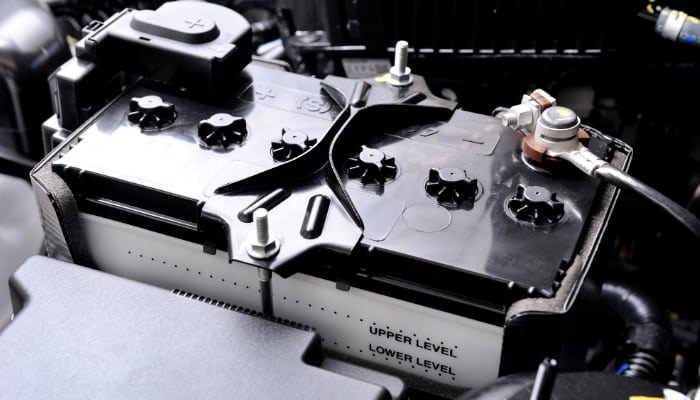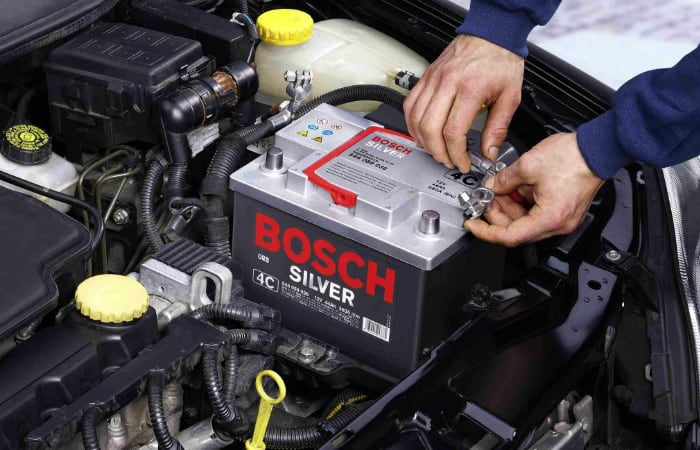All automobile components have limits. Sooner or later, they eventually deteriorate no matter how high-quality their construction is. Car batteries are no exceptions. Sure, these powerful components can function well despite heavy use and changing temperatures, but they ultimately give up in the long run. Now that we are curious, how long does a car battery last?
What Makes a Good Car Battery?
First, let’s find out some useful factors to consider before purchasing a brand-new car battery in case you are currently looking for a replacement. It is easier to monitor the battery’s aging process if you purchase it as a brand-new item in the first place.
Age
Ensure that the car battery you are going to buy is brand-new if you prefer a fresh one to use. Check the manufacturing date on the battery’s surface. The standard here is to make sure that you will purchase a battery within six months since it was manufactured. This is crucial because a battery not in use for a long time still deteriorates.
Just a heads-up, the manufacturing date is usually coded. The letter typically represents the month. The first letter of the alphabet is for the first month, the second letter for the second month, and so on. For example, A is for January, B for February, C for March, and the list continues as expected. Meanwhile, the number represents the year. For instance, we have 2 for 2002 and 9 for 2009.
Structure
Focus on the car battery’s external dimensions and the location of its terminals. Closely compare your old battery to the new one. If not, you might purchase a battery that will never fit your car.

For convenience, search for a car battery based on your vehicle’s model, make, and year. However, you have to be extra careful or you would base your purchase on wrong data.
Reserve Capacity
A car battery is even more special if it has a big reserve capacity. With excellent reserve capacity, your car can operate just by using battery power. This is practical if the alternator suddenly stops functioning.
Cold Cranking Amps
If you are living in a cold climate, better prioritize this factor. Cold cranking amps (CCA) measure the car battery’s capacity to start an automobile in freezing temperatures. Batteries with high CCA can start a car even if their chemical potential is already low and the engine oil becomes thick.

How Long Does a Car Battery Last?
An average car battery can last up to four years. However, total breakdown can happen earlier than expected due to several factors. Things such as negative driving habits, poor quality of the charging system and harsh travel conditions may result in your car suddenly stopping in the middle of the road because of a dead battery.
To make the four-year mark more possible, you should fully charge your battery through a very reliable charging system, keep it away from extreme heat or cold, and avoid using it as a power source for multiple car accessories as well as personal gadgets or devices. Examples of devices that can affect the battery are GPS receivers and MP3 players.
How Can We Prolong the Lifespan of a Car Battery?
As much as possible, drive on roads with few irregularities to prevent constant vibrations that can affect the battery’s promise of four years. Wait, what is the connection between vibrations and car batteries? Isn’t vibration more of a suspension system issue?
To fully understand further information, it is best to know first the structure of a standard lead-acid car battery. Plates of components such as lead dioxide are contained inside the plastic box. These plates are supported by a mixture of sulfuric acid and water, also known as the electrolyte solution. Thanks to the electrolytic solution, the electrons can flow from one plate to another. This process actually represents the flow of electricity.
Unfortunately, there are factors that can affect the supposedly foolproof design of car batteries. We already mentioned earlier that rough travel conditions and certain driving habits are common causes of a deteriorating battery. Stay with us as we carefully explain each factor:
Travel Conditions
Bumpy roads can destroy the internal structure of car batteries. It gets worse if your battery is not installed properly, intensifying the shaking motion which destroys the plates.

In addition, when you expose your vehicle to extreme temperatures, your car battery might not be able to handle it. Intense heat speeds up corrosion.
Driving Habits
There is one driving habit that we need to focus on because it is not technically a bad thing. However, when you do it constantly, it takes a toll on your car battery. We are talking about frequent short trips.
Let’s understand first that when you start your car, you are actually using a big amount of electricity in such a short period of time. That is why the charging system takes effect immediately to replenish what the battery has lost.
The problem is that when you constantly take brief trips, the car battery always fails to get completely charged up. In the long run, acid stratification will happen. The result is a homogenous electrolytic solution dividing into two parts. The upper section will be composed of light acid while the bottom part contains heavy acid. Eventually, the light acid will corrode the plates while the heavy acid works harder than it should. Ultimately, your battery will have a shorter life.

Honestly speaking, this factor is too hard to avoid for there is really nothing wrong with traveling short distances daily. After all, many people buy cars solely for traveling to school or work. If you focus on other factors, your car battery might stand a chance against the test of time.
How Should We Maintain a Car Battery?
There are three simple steps you may follow as part of your car maintenance procedures:
Use your sense of smell.
A failing car battery will smell like a rotten egg, sulfur or overheating chemicals. So, your nose may be enough to determine if something is wrong with your battery. When it is time for you to check the battery, start smelling for signs.
Inspect for signs of stains or corrosion.
To thoroughly check a car battery that has an insulating sleeve or case covering it, remove its cover so you can easily spot stains or corrosion. These marks mean there is a leak.
Clean the terminals.
Car battery terminals may suffer from buildup. You can actually clean them. What you need are just water and baking soda. Just never forget to wear safety glasses and gloves while doing the process. There is sulfuric acid in the electrolytic solution which can harm your skin.
Summary
Car batteries that undergo proper maintenance can last up to four years. The four-year standard becomes harder to reach if the vehicle owner always experiences harsh travel conditions and has negative driving habits.
Since we are talking about car batteries, find out the best car battery testers!








